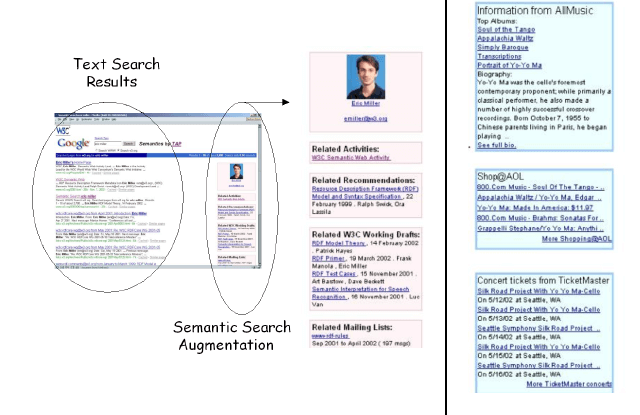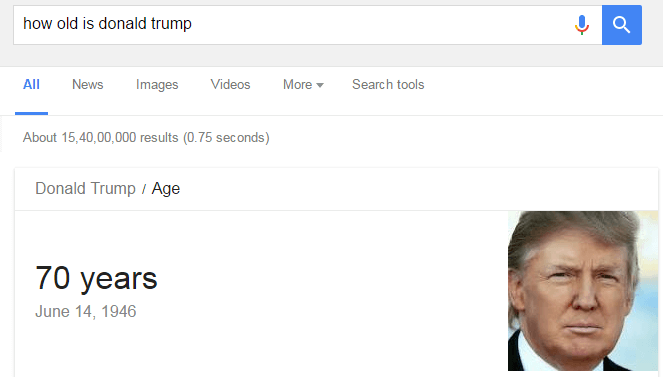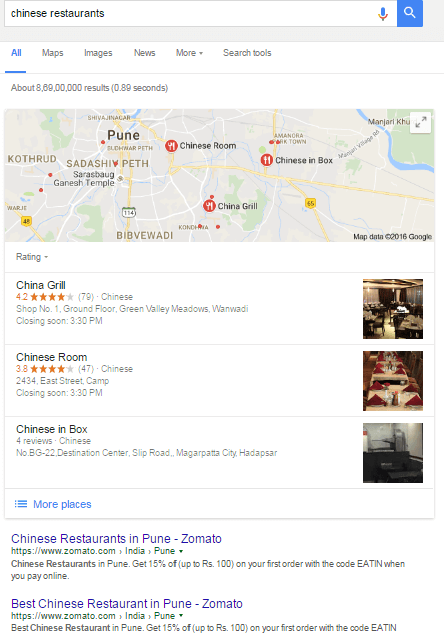Whenever we speak, hear or read about search engines and search results, semantic search is a phrase that comes up often nowadays.
Such new terms are coined and released by search engine providers from time to time, and leaves us wondering and forces us to ask, “Now, what’s next?”
So,
- What is semantic search?
- How does semantic search work?
- How does it affect the way search engines work?
- How important is it for the SEO of a website?
- Do I need to do any additional semantic keyword research?
- Is this a reason to be anxious about?
I will answer all these questions in this article.
What is Semantic Search?
To define this phrase, let us turn to where Google does – Wikipedia.
Wikipedia defines it as:
“Semantic search seeks to improve search accuracy by understanding searcher intent and the contextual meaning of terms as they appear in the searchable data space, whether on the Web or within a closed system, to generate more relevant results.”
Confused!? Well here is a simpler one by Techopedia:
“Semantic search is a data searching technique in which a search query aims to not only find keywords, but to determine the intent and contextual meaning of the words a person is using for search.”
Still haven’t understood it yet! No worries. Let’s explain this in laymen terms:
Semantic Search is a new algorithm, wherein, the Google semantic search engine will not only depend on keywords to deliver search results, as they did earlier.
They will now factor in other variety of information about the user to give better search results to what user intends to search.
Two concepts are the key to semantic searches, namely, Intent and Context.
- Intent refers to what a user wants to search online or simply what he is typing in a search engine, and
- Context refers to entities that give meaning to that search.
Search engines now are able to understand and link both of these, and deliver better search results to users.
The gradual evolution of these two concepts in today’s world has led to the rise of Semantic Search.
The Conception of Semantic Search
In his book Google Semantic Search, David Amerland, starts the foreword with the following sentence:
“Search Is Changing.”
This statement defines the new era of search engines and the way users search information online, today.
If you have been using the Internet for some time now, you may have noticed the drastic leap search engines have taken in improving the quality of their search results.
With the advent of technology, the range of devices used to search has expanded, and surprisingly even includes the TV.
Along with this expansion, the input medium has also changed with voice applications, such as Siri, Cortana and Google Now, joining the ranks of keyboard input.
Due to all these leaps in technology the nature of Search Queries is changing.
Gone are the days when users used to do simple searches online such as “shopping in LA”.
Today users’ search queries are becoming more specific, for example,
- Where can I shop for Indian clothes in LA, or
- Where can I find discounts for Indian clothing in LA.?
Search engines have realized that just factoring in keywords is not enough, they need to comprehend how online content is related within one site as well as in the web.
This shift from keywords to more important factors has pushed search engines to look at words as concepts and have evolved into self-learning machines.
Semantic Search was first introduced as a theory in 2003, in a paper by R. Guha et al., of IBM, Stanford, and W3C.
The paper explained how semantic search would work and this is where Semantic Search was conceived.

(Picture Source)
The Birth of Semantic Search

It took 10 years, for the theory of Semantic Search to come into practice. In 2013, Google released the major Hummingbird algorithm update which proved to be the turning point in the way search engines work.
It introduced conversational search into search engines, and the semantic search algorithm was designed to focus on changing the way search engines understood search queries.
With semantic search, search engines would now look at words as concepts rather than single entities.
They take in all the words together and try to connect them to get a better understanding of what user intents to search, and this helps to narrow down the search engine indexing and present the next phases of search with more accurate data.

What Factors does Semantic Search consider?
To find and present the most accurate and relevant results, the Google semantic search engine looks for search entities.
In this process, the search entities are taken into consideration to form a relationship between the words in a search query, which is further used to check the relevance of documents online and to present valuable and accurate data to the user.
To know more on how search entities work, refer to this well explained article by Bill Slawski.
In addition to search entities, Google also takes into account the following factors:
- User’s location: Results will have documents close to his location.
- User’s search history.
- Global search history: Similar searches done simultaneous throughout the world.
- Query characteristics: spelling, variations and so on.
- Repetition of terms and distance between them.
Semantic Search in Action
Let us take a semantic search example. Let us say I search for the query “Chinese restaurants”. If the search engine gave me results based on keywords only, then I would get a list of all the Chinese restaurants in the world.
However, due to semantic search it doesn’t do that. If you notice in the image below, the semantic search engine took into consideration my GPS location and the fact that I search a lot about Pune to give me results of Chinese restaurants in Pune only rather than any other place.

This is the best example of semantic search at work and its greatest advantage is that it gives you accurate and more relevant results.
Optimize Website for Semantic Search
Now that we have seen that semantic search is way superior to earlier ways of searching, what can we do about it?
Here are some semantic SEO solutions you can apply to optimize your website for semantic search:
-
Keywords:
Keywords still do matter, however, focus less on them. Shift your focus more to content’s context and avoid keyword stuffing.
Additionally, focus more on semantic keyword research or long tail keywords when writing articles.
Try to use companion keywords or closely related keywords in the article so that the search engine can better understand the meaning of the article.
Also, make sure to use synonyms and variations of a word and avoid repeating the same word throughout the article.
-
Content:
Create high quality content that has a clear focus, context or objective and make sure it is written on a single topic.
This helps Google search engine to understand your content better and relate it to other similar content.
Also, keep user intent in mind when adding keywords into the article.
-
Structured Data MarkUp:
Use relevant schema in your website, such as Local SEO schema to improve your chances of being listed in local search results.
-
Link to Similar Topics:
If your article is linking to external articles then make sure that the content of the external page is similar to yours and the external page is more valuable than yours in the eyes of Google.
This will help build relevance and semantic relationship helping you further in Google search results.
-
Optimize Social Sharing:
Use social network metadata such as Open Graph, Twitter Cards and Rich Pins to improve the way your content looks online. A good content post will attract users to the article.
-
Tools You Can Use:
Following is a list of semantic search tools you can use to enhance your website for semantic search:
- AlchemyAPI
The Conclusion of the Matter
The search engine world is certainly changing drastically to a more natural and humane search.
Though keywords are not completely out of the picture yet, the focus has to shift to better content and context for users.
Keep user intent in mind and use long tail keywords for your content. Also, use variants and synonyms generously in your content and link it to other similar authoritative content online.
- Must Read – Internal Linking for SEO – How and Why to do it?
Enable Schema Data Markup for your website and optimize it for social sharing.
Semantic search is here to stay and will only get better and more advanced in the future.
Use the tools available to help you optimize your site for semantic search today and prepare yourself for any future major search updates.
So if we had to summarize what we have to do to optimize our website for semantic search then it involves simply giving your users a wonderful experience on your site.
To get more such articles directly to your mailbox Subscribe to eMoneyIndeed now.
We hope you found this article useful and informative as always. Do leave your valuable comments below and don’t forget to share this article with your friends.
-
Go Create Your Own Blog Now.

 eMoneyIndeed Make Money Online
eMoneyIndeed Make Money Online










